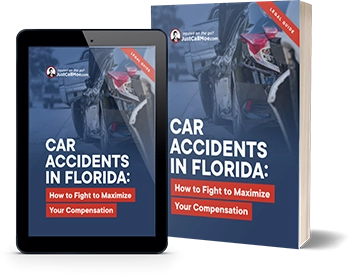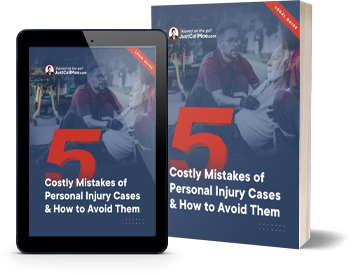Once you’ve been in an accident, you have a right to file for compensation for injuries or damage caused by the accident. However, Florida law requires you to prove the negligence of the at-fault party before you can pursue any monetary damages. In some instances, getting the necessary evidence to establish a defendant’s liability may not be straightforward.
So, what should you do in such a case? You can seek compensation under Florida’s negligence per se laws. The Florida personal injury lawyers at JustCallMoe explain what negligence per se is and how it’s different from common negligence.
Negligence vs. Negligence Per Se: The Difference
There’s a key difference in terms of what is required to prove negligence and negligence per se, as highlighted below:
Negligence
Under Florida statutes, anyone involved in a personal injury accident must establish negligence against the at-fault party to receive compensation. Negligence refers to failure to act reasonably or in a way a reasonable person would in similar circumstances.
To prove that a defendant failed to act reasonably, a plaintiff must show that:
- A defendant owed them a duty of care
- A defendant breached the duty to care
- They suffered an injury or damages
- A defendant’s breach caused their injuries
Evidence must be gathered quickly in order to ensure that you preserve all evidence needed to prove negligence in court.
Negligence per se
Negligence per se is a legal policy that allows plaintiffs to seek compensation when a law has been broken. All a plaintiff needs to prove negligence per se in a Florida personal injury case is that:
- A defendant violated a public safety ordinance or statute
- They are among the class the statute or ordinance was designed to protect
- The injury they suffered was the one the statute or ordinance was designed to prevent
- Their injury was a result of a defendant’s violation of public safety statute or ordinance
Examples of Negligence Per Se
Negligence per se revolves around violating a public safety ordinance or statute. Examples of offenses that violate a public safety statute in Florida include:
- Driving under the influence (DUI): This is one of the laws designed to protect people from accidents. A DUI in Florida can result in the recovery of damages in a personal injury case.
- Dog bites: Dog bite laws exist to protect the public from dangerous dog breeds. If a dog bites someone in Florida and is in violation of the dog bite rules, the owner may be liable for damages caused by the bite.
- Trip & fall: If the riser height on a stair tread does not meet code, it may be negligence per se since the building codes were designed to ensure that the stairs were safe for the public to walk up and down.
Contact a Professional Personal Injury and Accident Attorney in Florida
If you or a loved one is injured in an accident, a skilled attorney can help you recover lost damages by proving the defendant’s negligence or negligence per se. Contact JustCallMoe today for an evaluation of your case.
FAQs on Florida’s Negligence Per Se Law
What are some of the damages I might receive after an accident?
After an accident, you may receive monetary coverage for your medical bills, lost wages, and any other damages caused by the accident or injury.
Are punitive damages awarded in a personal injury case?
Yes, punitive damages may be awarded in some cases if a defendant violates a public safety statute in Florida. Punitive damages must be specifically plead, so it is important to consult with an attorney before pursuing a punitive damages claim.

 (866) 225-5663
(866) 225-5663



